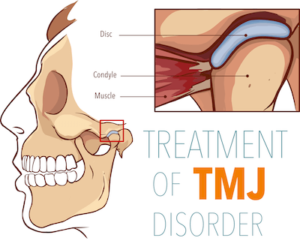The Pelvic Floor Muscles (PFM) are a group of superficial and deep muscles in our pelvis that we have direct control over. These muscles form the base of our core to stabilize our spine and pelvis and support the pelvic organs, such as the bladder, bowel, and uterus. They control the passage of urine and feces and are essential for both men and women’s sexual arousal and satisfaction.
Why Are Pelvic Floor Muscles So Important?
Pelvic floor muscles are important for several reasons, and changes in their function and strength can contribute to various issues, including:

- Urinary and/or fecal incontinence (1 in 3 women and 1 in 9 men suffer from incontinence)
- Pelvic organ prolapse
- Pelvic and low back pain
- Prostate conditions
- Pain with intercourse
- Difficulty with sexual arousal and orgasm
Many pelvic floor conditions are a result of the pelvic floor muscles being too weak, too tight, or uncoordinated and may be exacerbated by:
Heavy lifting: Incorrect lifting patterns may contribute to incontinence or pelvic organ prolapse
Obesity: Higher risk of strain on the pelvic floor muscles
Chronic coughing: May weaken the pelvic floor muscles over time due to repetitive strain
Ageing: Hormonal changes may affect the integrity of pelvic floor musculature
Pregnancy and childbirth: Physiological changes occur in the pelvis to carry and birth a baby
Constipation: Straining to have a bowel movement can weaken the pelvic floor over time
How Can Pelvic Floor Physiotherapy Help?
Pelvic floor muscles are skeletal muscles, meaning you can voluntarily control and train them by repeating correct exercises. By visiting a pelvic floor physiotherapist, you can learn how to identify, activate, strengthen, or relax the right muscles. In addition, you can improve your symptoms by learning to coordinate your pelvic floor, diaphragm, and abdominal muscles and then apply what you’ve learned to functional activities and exercises.
Pelvic floor conditions can arise from various systems in the body, including the musculoskeletal structures, nervous system, and visceral (organs) structures. Your pelvic floor physiotherapist will take a holistic approach to assess all areas that may be contributing to your symptoms, including:
- Pelvic floor
- Hips
- Lumbar spine
- Abdominal region (core)
- Central nervous system
- Sacro-iliac joints
- Pubic symphysis
What Can I Expect during Appointments?
During the initial assessment, our pelvic floor physiotherapist, Jennifer Mildon, will get a detailed history and understanding of what your symptoms are and how they are affecting you. Then, she will do an external exam which commonly includes assessing your posture, strength, and mobility in your hips, pelvis, and low back. If you are comfortable, she would also do an internal vaginal and/or rectal exam, which would provide useful information about your pelvic floor muscles. However, if you are not comfortable with an internal exam or are experiencing acute pain, Jennifer can complete the assessment without it.
While there may be some discomfort with the treatment or assessment, it should not be painful and should not aggravate your symptoms. Based on the assessment findings and your goals, Jennifer will create an individualized treatment plan to address your symptoms and help you achieve your goals.
Subsequent visits will focus on the treatment of your symptoms and may consist of:
- Education
- Exercises
- Lifestyle modification strategies
- Relaxation techniques
- Pelvic floor muscle retraining
- Core strengthening
- Bladder or bowel training
- Manual therapy
- Functional dry needling
Meet Jennifer Mildon, Diversified Health Clinic’s Pelvic Floor Physiotherapist
 Jennifer completed her Master’s of Physical Therapy at UBC in Vancouver. Before moving to the west coast to pursue her physiotherapy career, she completed her Bachelor of Science at Dalhousie University in her home province of Nova Scotia.
Jennifer completed her Master’s of Physical Therapy at UBC in Vancouver. Before moving to the west coast to pursue her physiotherapy career, she completed her Bachelor of Science at Dalhousie University in her home province of Nova Scotia.
Jennifer believes that providing the best client-centred care often requires collaboration with a team of health care professionals from diverse disciplines. She is dedicated to delivering a physiotherapy service that focuses on improving and maintaining an active and healthy lifestyle, to enable her clients to enjoy life in the ways that are most meaningful to them. Jennifer employs an evidence-based treatment approach that blends manual therapy, dry needling, functional exercise programs, and client education to optimize health outcomes while achieving client goals.
Jennifer is committed to staying current on physiotherapy-related research. Jennifer has completed training with Pelvic Health Solutions to be able to provide caesarean and vaginal birth rehabilitation, as well as treatments for incontinence and pelvic pain. She is certified to provide Functional Dry Needling and has also completed training in concussion management and vestibular rehabilitation.
Jennifer has a strong passion for sport and recreation and has always spent her free time being active and exploring the outdoors. When not in the clinic, Jennifer enjoys maintaining a healthy lifestyle through yoga, swimming, biking, hiking in the backcountry, and sailing around the Gulf Islands.
Learn More about Pelvic Floor Physiotherapy or Book a Treatment
Contact Diversified Health Clinic for more information on Pelvic Floor Physiotherapy or to book with Jennifer Mildon. Please call us at 250-382-0018 or book online at www.diversifiedhealth.janeapp.com
#pelvicfloorphysiotherapy #physiotherapy #victoriabc #womenshealth #menshealth #pelvicpain #incontinence #prenatal #postnatal #childbirth #prostate #organprolapse





